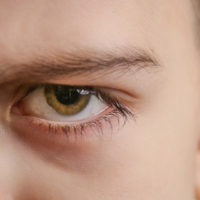Conduct Disorder (CD)
-

Abnormal visual fixation does not mediate deficits in emotion recognition in conduct disorder
Studies have shown that conduct disorder (CD) is associated with impaired recognition of facial emotions1, but whether the cause of this deficit is due to difficulties with attention, interpretation and/or appraisal is unclear. Now, researchers at the Universities of Southampton and Bath have addressed this question.
Read more -

Aggression toward siblings during the preschool years: When does it become atypical?
Most children grow up with siblings. During early childhood, siblings spend a great deal of time together and must navigate challenging situations such as sharing toys and parental attention, features that make conflict inevitable and often emotionally intense.
Read more -

Comorbid anxiety disorder has a protective effect in conduct disorder
The presence of comorbid anxiety disorders (ADs) counteracts the effects of conduct disorder (CD) on facial emotion recognition, according to new research by Roxana Short and colleagues.
Read more -

Cortical thickness can differentiate conduct disorder subtypes
A study by Graeme Fairchild and colleagues has used a neuroimaging approach to compare the structural organization (or “covariance”) of brain regions between youths with different subtypes of conduct disorder (CD) and healthy controls (HC).
Read more -

Parenting practices that support the sensation-seeking child
Sensation-seeking is a personality trait of people who go after varied, novel, complex and intense situations and experiences. Sensation-seekers are even willing to take risks in the pursuit of such experiences. Until now, research has primarily focused on how sensation seeking relates to the development of undesirable behaviours, including drug and alcohol abuse, high risk sexual behaviours (like unprotected sex or having multiple partners), gambling and delinquency.
Read more -

Psychological interventions have a small but significant effect in young children with conduct disorder
In 2017, Mireille Bakker and colleagues performed a systematic review and meta-analysis for the Journal of Child Psychology and Psychiatry, of the currently available psychological treatments for children and adolescents with conduct disorder problems. Here, we summarise the researcher’s key findings and the potential clinical implications for this field.
Read more -

Reconstructing child psychopathy
Reconstructing child psychopathy into grandiose-manipulative, callous emotional and daring-impulsive traits will facilitate diagnosis and treatment of conduct disorder.
Read more